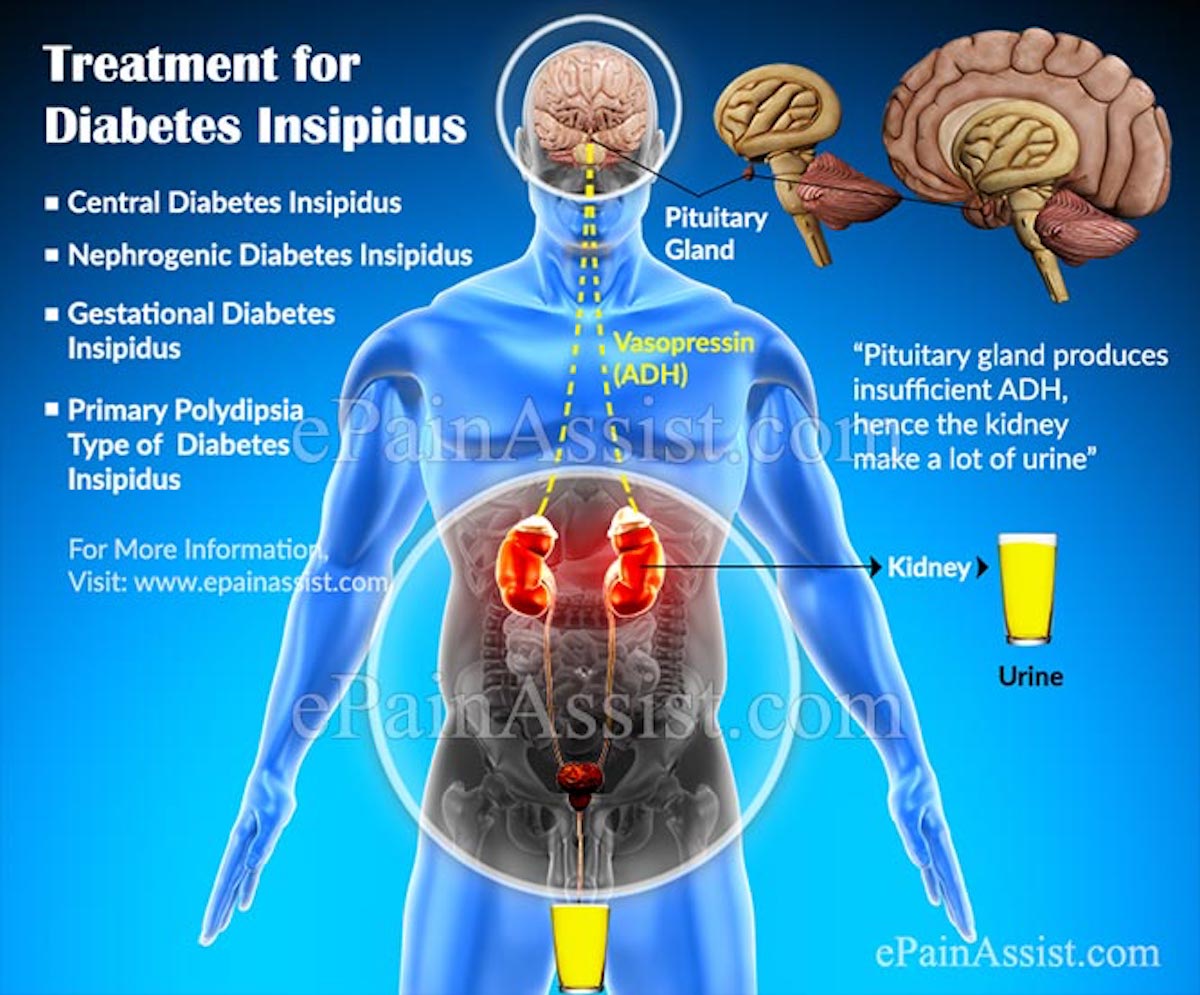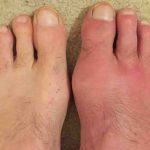Treatment of Diabetes Insipidus

The treatment for diabetes insipidus is dependent on which type. For individuals with central diabetes insipidus, the most popular treatment option is a synthetic hormone known as desmopressin that is administered orally, via injection, or by a nasal spray. This hormone reduces the amount that a person needs to urinate and is also used to treat gestational diabetes insipidus. Meanwhile, nephrogenic diabetes insipidus is usually treated by limiting the intake of sodium and with the help of a drug called hydrochlorothiazide, which also decreases the output of urine. Another way to help reduce symptoms of diabetes insipidus is to limit the amount of fluid intake, which will in turn reduce the amount of urination.
More from Things Health
-
The Silent Signs and Symptoms of Diabetes
Early awareness of this serious disease is essential as vital organs and tissues can be compromised leading to permanent damage. It is possible to have…
-
Symptoms of Gout
Gout is a form of inflammatory arthritis characterized by recurrent attacks of a red, tender, hot, and swollen joint. Pain typically comes on rapidly in…
-
Symptoms Of Epilepsy
Epilepsy a neurological disorder marked by sudden recurrent episodes of sensory disturbance, loss of consciousness, or convulsions, associated with abnormal electrical activity in the brain.…
-
Symptoms Of Ovarian Cancer
Ovarian cancer is often referred to as a quiet disease as it usually isn't discovered until it is in the advanced phases. In nearly all…
-
Symptoms of Adult ADHD
It is not easy for a doctor to diagnose adult attention deficit hyperactivity disorder. An adult will understand the signals of ADHD in himself or…






